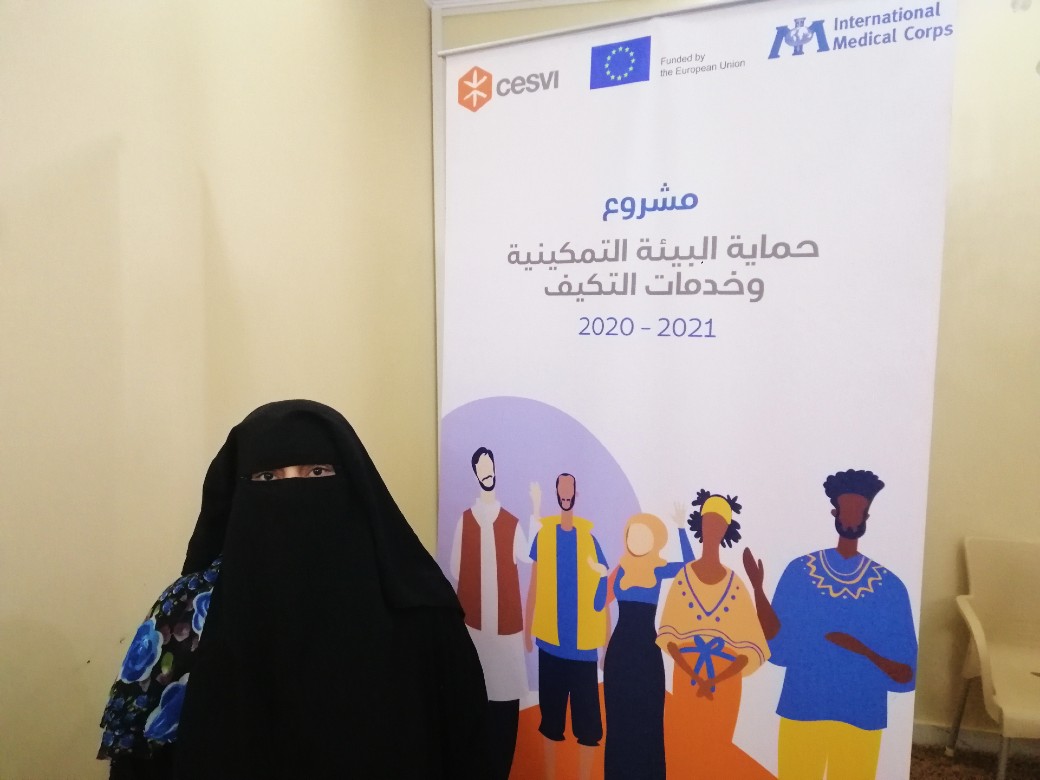Ameera sits in the cool and dim meeting room in Cesvi’s office premise. The windows have drawn curtains, shielding the place from Libya’s soaring summer temperatures. She recounts her personal journey in the presence of a Cesvi psychologist and her dedicated case worker who have been supporting and seeing her and her son for the past six months.
The 40-year-old woman – a Syrian refugee and single mother of multiple children – was thrown into a precarious situation when her husband went missing in 2017. Moreover, Ameera suffers from a medical condition causing her significant pain. Her condition – considered a disability – sadly prevents her from working. Therefore, she resorted to pulling two of her children – both under 15 – out of school to work to meet their basic needs and afford food items. “I had to deprive them of their childhood and their education… We were neither secure, nor safe, protected or supported. I had to do it”. Ameera’s story sadly reflects the reality of many Syrian refugees in war-torn Libya. As of July 2021, Syrians account for 34% of the over 42,000 registered refugees and asylum seekers in the country (UNHCR 06/2021).
Already vulnerable as a single mother, unable to work, struggling to cover rent and put food on the table, Ameera describes the pivotal moment when her son was subjected to an aggression by someone in their neighbourhood at the end of last year: “It was the last straw for me… I was desperate for life”. Following the attack on her young son, the family lived in terror and constant fear of encountering the aggressor. “We felt panicked, petrified, saddened… and trapped in the house; we could not go out.” Ameera’s son was suffering from post-traumatic stress disorder and the mental health of the whole family plummeted consequently.
Their circumstance is compounded by the country’s fragile stability. Despite a ceasefire since the re-escalation of violence in 2019, Libya has suffered further negative impact due to the pandemic. COVID-19 exacerbated the country’s fragile environment, increasing serious protection issues for everyone, including increased risk of domestic violence due to lockdowns, curfews and a reduction in livelihoods opportunities.
Desperate, Ameera contacted UNHCR – the UN Refugee Agency – who referred her and her son to Cesvi, where a psychologist and a gender-based violence (GBV) case worker started providing specialised case management services. Ameera and her son are now part of Cesvi’s project “PEERS: Protection Enabling Environment and Resilience Services”, funded by the EU Trust Fund for Africa (#EUTF4Africa). To date, Cesvi has provided non-specialised psychosocial support services and specialised case management services to more than 800 people from the Libyan, refugee and migrant communities.
“The assistance offered by Cesvi was like an electric shock that restores life… like a pulse, it resuscitated our lives” said Ameera. Thanks to Cesvi’s support, Ameera felt more empowered to begin her journey towards recovery, along with her son. “After receiving psychological support and counselling, my son has become stronger, able to face life situations. Previously, he was unable to go anywhere (…) but he is now able to integrate into society and to practice his daily activities with confidence. Finally, he managed to overcome the crisis and continue studying.”
She remarks that her children’s wellbeing has improved. She and her children moved from their previous neighbourhood and are currently living in a house financially supported by Cesvi, providing stability and a new beginning for them. As part of a support package, her children can now receive non-formal educational sessions at the Cesvi-run Baity centre in Misrata.
With regained strength and confidence, she hopes her application for resettlement in a more stable environment will be successful. She longs for a peaceful life where her children do not fear discrimination and aggression. For now, she is grateful for the tools and methods she has acquired through Cesvi’s counselling services. She feels she has become more resilient to face challenges ahead and meet her needs and that of her children to lead a more dignified life.
